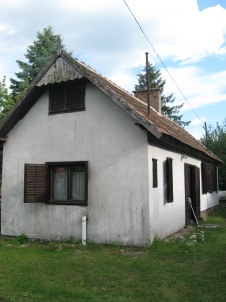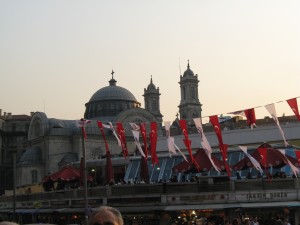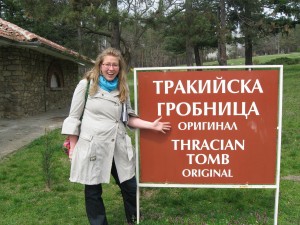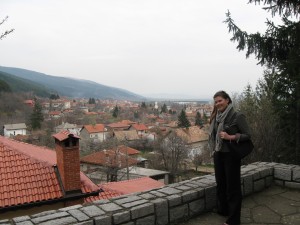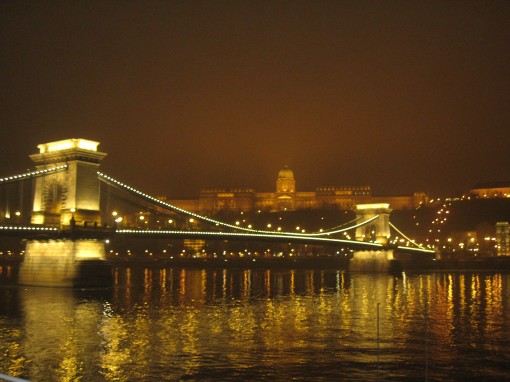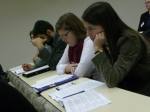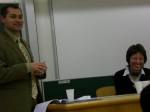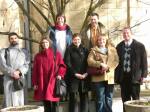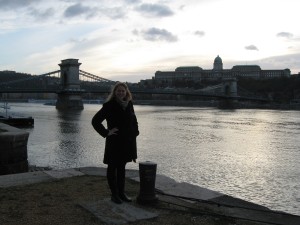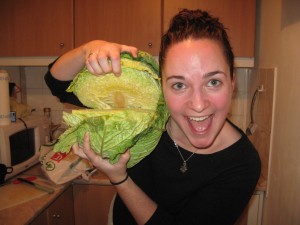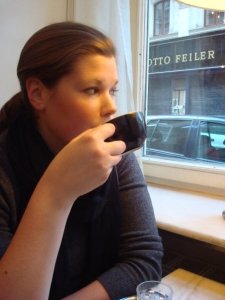I am really, really wishing I could freeze time right now. It is jumping by in great big gobs — far too fast to hold onto.
I was talking to my fellow Fulbrighter, Sarah, tonight, as we finished planning our Great Balkan Adventure (10 days through Bosnia and Croatia, for which we depart Tuesday morning!) and, as we hung up, she noted: “I can’t believe it’s all ending.” But it is — she won’t return to Hungary after said G.B.A.; I will but just for about four days. Last Sunday night, over another around in Szimpla, Natalie noted it was our last night as “official” Fulbrighters, as the grant technically ends May 31. We were both shocked into a sad, nostalgic daze by this (which we dealt with the only way we could figure out: lots and lots of pálinka.)
Right now, I feel oddly similar to how I did last August, nervous and jumpy, not able to sleep and constantly feeling that nagging “did-I-forget-something?” feeling” The emotion made sense then: I was off to the most unknown of the unknown, a country and a language and a people I knew nothing about. Now, I’m off to what is very well known: I’ll be back to D.C. (more home than the parental home now), and, even more familiar, I’ll be back to the exact same apartment, with a good, old friend … even the old neighbors have promised a welcome-back beer. So, why do I seem so scared now?
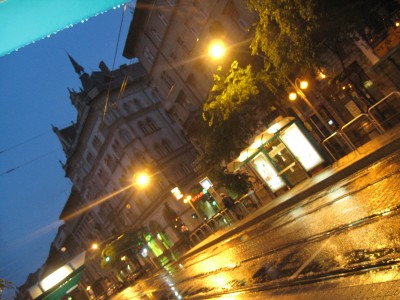
Ring Road at dawn
Maybe it’s because I am leaving a lot, a dreamworld of sorts. The girl who spent her teen years drooling over National Geographic magazine and wishing for a passport will have been in ten countries and at least twice as many cities this year. Or maybe because I am still leaving a home, albeit one held for a short time.
Just last night, one of my favorite clubs, Gödör Klub, was having its regular Balkan Beats night. This is an awesome, awesome dance party, where bands from both Hungary and around Europe play a crazy, amped-up version of folk music. In short, it’s dance-tastic. (should you ever land here, you must check and see if its on) This month’s lineup was particularly good, with Hungarian band Romano Drom and the German DJ who founded this party. The floor was packed, the huge steps which lead into the club (in the site of an old bus station, so it’s sort of underground) were teeming with Budapestians and backpackers. After a sweaty dance session to Romano Drom’s set, we headed outside for some much-needed fresh air. As we sat in the grass nearby, I looked at the group we made: Natalie and I, the Americans; Patrick, our German friend; Nat’s Icelandic boyfriend, Baldur; and an assortment of two Swedes, a Dane, a Scot, a Brit and two Hungarians. We tipped back Dreher and fröccs, looking at the illuminated dome of Szent István cathedral. Tired, Natalie and I lay down and looked up at the few stars that we could see through the city lights. We watched the light go out on Szent István around 2 a.m. It seemed somehow fitting: a goodnight, a goodbye.
But then Patrick and Baldur pulled us back up to continue dancing. It also seemed somehow fitting: a reminder that there is no such thing as an end to an experience this lovely.
We danced until we were dripping. We walked home through a still-buzzing Király utca at nearly 4 a.m. We called it a beautiful night. We called Budapest in the early summer beautiful. We called life beautiful.
